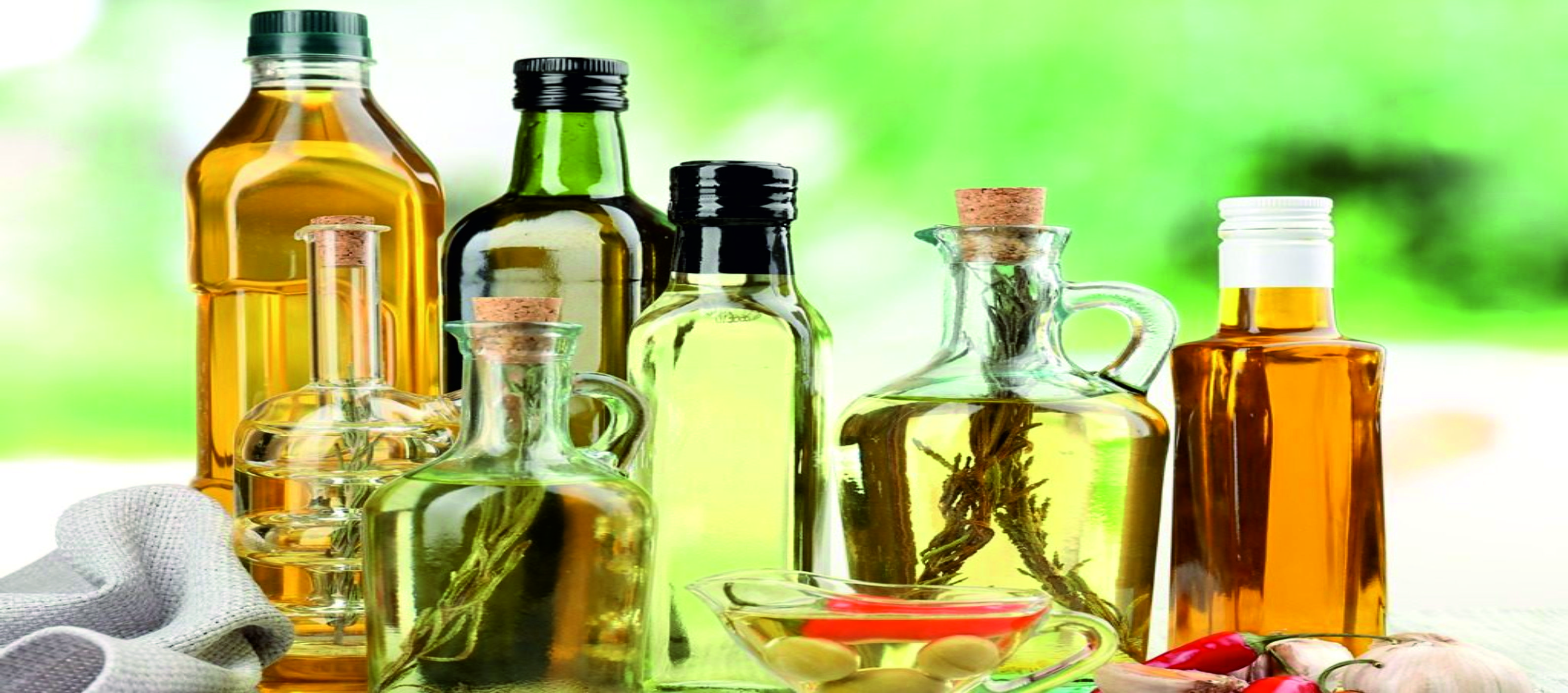All foods contain natural oils to varying degrees. True to the sanskrit term ‘sneha’ which means oleation and love, oils provide nourishment and strength to the body tissues. Ayurveda has dealt with vegetable oils under the heading of aharopyogi varga and the taila varga. Let us briefly discuss the therapeutic qualities of the few edible oils mentioned in ayurveda and also of some of those which were invented later.
All foods contain natural oils to varying degrees. True to the sanskrit term ‘sneha’ which means oleation and love, oils provide nourishment and strength to the body tissues. Ayurveda has dealt with vegetable oils under the heading of aharopyogi varga and the taila varga. Let us briefly discuss the therapeutic qualities of the few edible oils mentioned in ayurveda and also of some of those which were invented later.
Sesame oil
Commonly known as tila taila, it is the most commendable of all oils. It is sweet with accompanying astringent taste, hot in potency and is endowed with properties to penetrate subtle channels of the body. Used in abundance in the panchkarma therapy, sesame oil is the best medicine to alleviate vata. It promotes general strength and skin health and is recommended to be applied in all types of cuts and wounds, insect bites, as enemata and massage oil in diseases of the nervous system like paralysis, stiffness of the limbs and muscle weakness. Many famous classic ayurvedic oils such as Mahanarayani taila, Bhringraj Taila, Jatyadi Taila and Brahmi Amla Taila are prepared in the sesame oil base.
Mustard oil
Known as sarson oil in common parlance, mustard oil is used in almost every home in India, particularly in northern provinces. It is pungent in taste and is hot in potency. As an edible oil, it acts as the killer of intestinal worms. It is best recommended for massage in conditions involving general dryness of the skin during the winters. Applied locally after mixing with a little of mushak-karpur, it serves as a magic remedy for urticaria and non specific itching of the skin folds.
Coconut oil
Extensively used in south Indian cuisines, coconut oil has been described as an oil which is cool in effect. It is also known as a hair nourishing agent, skin tonic, body and mind energizer and endowed with many other qualities similar to that of a cod liver oil. Coconut oil is sued and applied as a household remedy for skin allergies, eczema, burns and scalds.
Castor oil
Also known as eranda taila, it has been traditionally used as a purgative. All ayurvedic texts have eulogized it as a panacea for acute and chronic cases of rheumatoid arthritis and there are many classic decoctions and guggul preparation where castor oil is an additive. As a household remedy castor oil can be safely taken in a dose of ten to twenty ml at bed time with milk or used simply by adding it into the wheat flour while making the chapatti.
Almond oil
Not utilized as cooking oil, almond oil is more favoured by the exponents of Unani system of medicine for health formulas and massage therapies. It is hot and heavy in effect and is a general health tonic. Almond oil is regarded as an aphrodisiac and eye and brain refresher and is used since ages for massage of body and scalp and also for instilling in the ear and the nose. It is laxative in effect and patients suffering from stubborn constipation get symptomatic relief if they daily take it with warm milk at bed time.
Olive oil
Though not mentioned in ayurveda, olive oil is a cooking medium in the countries of the West Asia and Europe. It has nowadays gained immense popularity throughout the world and its massage is specially recommended in emaciated and week children. Olive oil is also a favourite of the beauticians as its regular application is believed to allay premature wrinkling and loosening of the skin. Being very hot in effect, it should be avoided by persons of pitta prakriti.
Other oils
For cooking purpose many oils like ones extracted from seeds of groundnut, sunflower and cottonseed are used in India. They are nutritious, heavy and hot in effect. The rice bran oil, which was previously used in far eastern countries, seems to gradually entering into Indian kitchens. It is reported to be light, easily digestible and closer to the safe parameters set by modern scientists. But one should never use oils which are chemically treated and added with colouring agents.
Used in abundance in the panchkarma therapy, sesame oil is the best medicine to alleviate vata.
Castor oil acts as a panacea for acute and chronic cases of rheumatoid arthritis and there are many classic decoctions and guggul preparation where castor oil is an additive.







 Dec 2024
Dec 2024
 May 2024
May 2024
 September 2022
September 2022
 April 2022
April 2022
 October 2020
October 2020
 Jan 2020
Jan 2020
 June 2019
June 2019
 January-February 2019
January-February 2019
 Augest-September
Augest-September
 April 2018
April 2018
 November 2017
November 2017
 June 2017
June 2017
 November 2016
November 2016
 September 2015
September 2015
 March 2015
March 2015
 July 2014
July 2014
 January 2014
January 2014
 July2013
July2013
 March 2013
March 2013
 May 2012
May 2012
 May 2011
May 2011
 Sep 2010
Sep 2010
 Jun 2010
Jun 2010
 Feb 2010
Feb 2010
 December 2009
December 2009
 August 2009
August 2009
 June 2009
June 2009
 Feb 2009
Feb 2009
 December 2008
December 2008
 October 2008
October 2008
 March 2008
March 2008
 July 2008
July 2008
 May 2008
May 2008